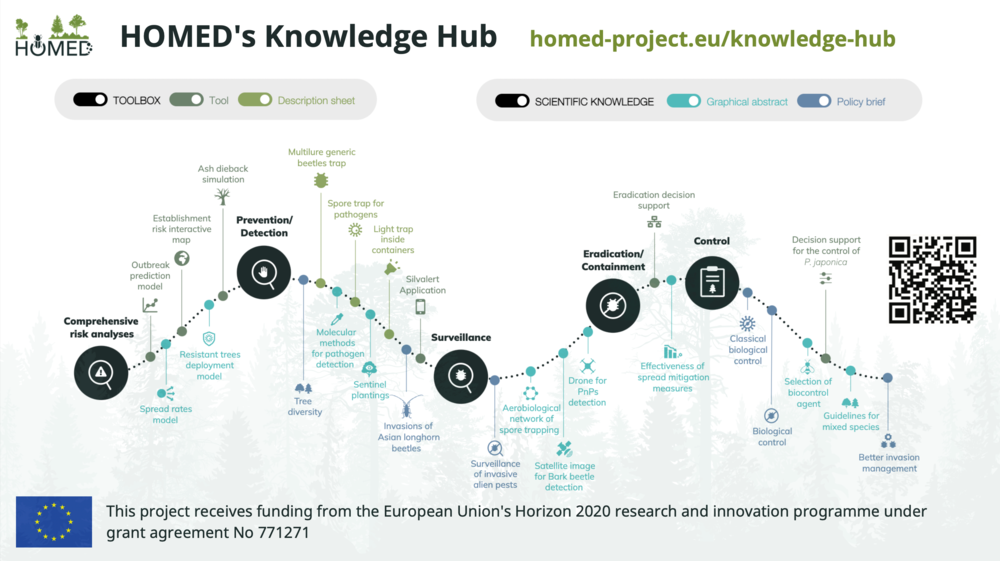holistic management of emerging forest pests and diseases
Improved management of emerging native and non-native forest pests and pathogens: the HOMED legacy
This press release has been published in EurekAlert! and in AlphaGalileo.
After four years of research collaboration, the H2020 project HOMED successfully ended with a full panel of scientific knowledge and practical solutions.
In the last decades, a growing number of invasive non-native pests and pathogens (PnPs) have been causing dramatic losses to European trees and forests. To mitigate these risks, the concluding Horizon 2020 project HOMED (Holistic management of emerging forest pests and diseases) developed a full panel of scientific knowledge and practical solutions for the improved management of emerging native and alien invasive PnPs threatening European forests.
Since 2018, HOMED has been considering forest health broadly, including trees not only in forests, but also in nurseries, urban and rural areas due to their key epidemiological role. Over 50 scientists, experts and stakeholders from 22 partner organisations joined forces to improve the existing strategies of risk assessment and management by targeting the successive phases of invasion, and developing innovative methods for each phase: risk analysis, prevention/detection, surveillance, eradication/containment, and control. And the results – more than 60 scientific publications, a number of policy briefs, practice abstracts, educational videos, and tools.
"As it is almost impossible to predict which exotic species will become established in European forests and cause damage, we have focused on generic methods and I am very satisfied to see that we have succeeded in producing very promising results for both insects and pathogens, thanks in particular to a unique collaboration between forest entomologists and pathologists."
- comments the project Coordinator DR Hervé Jactel.
HOMED's Knowledge Hub
To transfer the generated results and help forest stakeholders, HOMED developed its own Knowledge Hub, hosted on the project’s website. There, the user can follow the path of emergence or invasion and find the available tools and information adapted to each phase. The Hub provides the right materials for the needs of policymakers, practitioners, scientists and the general public: online tools with an interactive interface, descriptive sheets of developed prototypes, graphical abstracts popularising scientific results and policy briefs providing policy recommendations.
The HOMED project ended in September 2022 on a high note by presenting many of its results during the IUFRO All-Division 7 2022 Conference, which was then followed by the project’s Final meeting – both taking place in Lisbon, Portugal.
